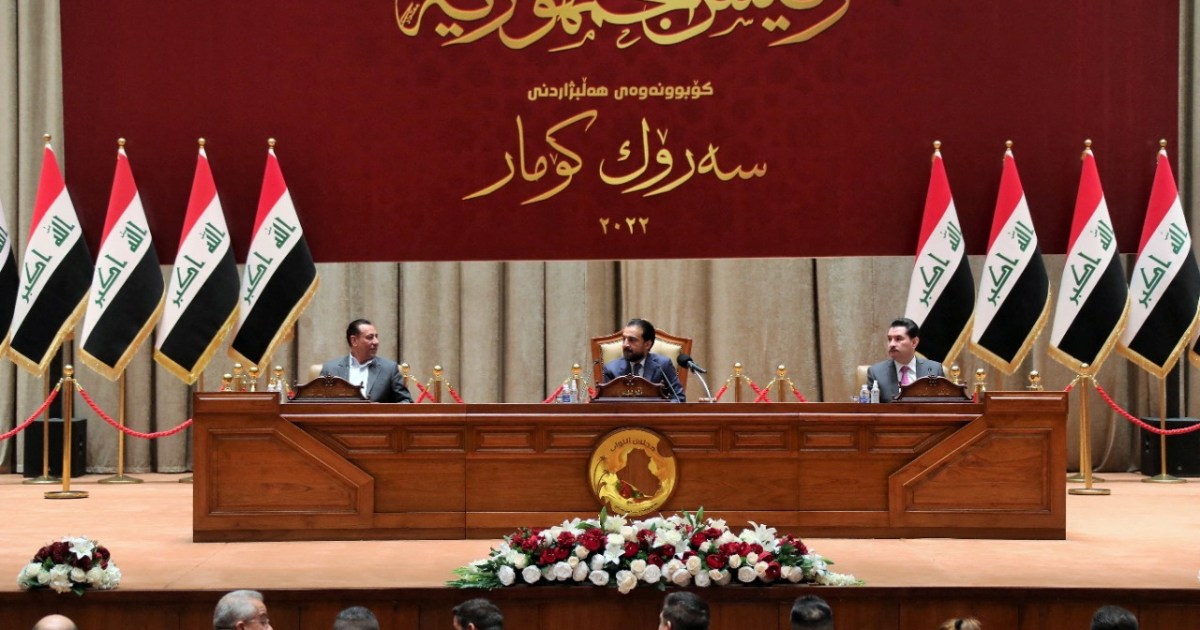Today, Wednesday, the Iraqi Council of Representatives will hold a session to elect a President of the Republic.
Last Saturday, the parliament failed to hold a session devoted to electing a president of the republic, due to the lack of a quorum and the boycott of the coordination framework (which includes Shiite forces with the exception of the Sadrist movement) and its allies for the session.
The House of Representatives approved the names of 40 candidates for the position of President of the Republic, most notably the Kurdistan Democratic Party candidate Riber Ahmed, the candidate of the National Salvation Alliance (which includes the Sadrist Movement, the Sunni Sovereignty Alliance and the Kurdistan Democratic Party), and the Patriotic Union of Kurdistan candidate, the current president, Barham Salih, who is closest to the coordination framework.
The coordination framework and its allies intend not to attend the session in order to breach the quorum, for the second time, and thus prevent the election of a President of the Republic.
Today's session requires the attendance of 220 out of 329 deputies in order to achieve a quorum, according to a previous decision issued by the country's Federal Supreme Court, which stipulated that the vote on the position of the President of the Republic be attended by two-thirds of the members of the Council.
Six months after the early parliamentary elections last October, Iraq is still without a new president, and therefore without a new prime minister who assumes the executive authority.
And if today’s session fails, Parliament will have until the sixth of next April to elect a president, according to a decision of the Federal Court, the highest judicial authority in the country.
If this date is exceeded, there is nothing in the constitution that specifies how to deal with the issue, so the possibilities remain open if the concerned parties do not reach an agreement.
Saturday's session was boycotted by 126 deputies, while 202 officially participated in the session, most of whom belong to the Sadrist Movement-led Alliance to Save a Homeland.
Since then, there has been no change in political positions, which indicates that the boycott will be repeated.
"So far, there are no serious and real discussions and negotiations... and if there is no agreement, we will boycott the session," MP Bahaa Al-Nouri, spokesman for the State of Law coalition, told AFP.
The Sadrist movement led by Muqtada al-Sadr, the biggest winner in the legislative elections, is pushing to form a majority government, stressing that he owns the largest bloc in his alliance with the Kurdistan Democratic Party and a large Sunni bloc from a group of parties, most notably a party led by Parliament Speaker Muhammad al-Halbousi, forming a total of 175 deputies.

